Could mining offer a ‘third way’ for Nigeria to cool a simmering conflict?
Central Nigeria’s herder-farmer conflict is stoked by ethnic rivalries, cheap weapons and climate change
Diane Abwa lives in Nigeria’s Benue state, at the center of the nation’s pastoralist-farmer conflict which has flared following the passage last year of a controversial law.
“I have a family friend whose hand was cut off; I see the helpless condition of the IDP camps, how people are starving and dying … I have been close to the lynching of a man thought to be a herdsman by a mob,” she told The Defense Post.
The land conflict has emerged as Nigeria’s most pressing security challenge. So far over 1,000 Nigerian civilians have been killed by it this year – far more than the 200 or so killed by the terrorist group Boko Haram. The state faces other security challenges such as instability and piracy in the Niger Delta. Like those conflicts, the fight between farmers and herders has been fueled by the ready availability of weapons in Nigeria and much of the Sahel following the 2011 overthrow of Libyan leader Muammar Qaddafi, which sent cheap arms flowing into the region.
The pastoralist-farmer conflict should, in theory, be less intractable than other conflicts in Nigeria, but it is in many ways far older.
At its core, the conflict is between Fulani herders and farmers from the Berom and other ethnic groups in central Nigeria. These groups have altered their traditional practices due to climate change, which has reduced yields for farmers and disrupted water supplies for herdsmen. Last year Benue state passed a law that targeted open-grazing – a measure that served as a catalyst for further conflict.
“Look at what has happened to Lake Chad, which has shrunk dramatically, and climate change has exacerbated tensions, which were there, yes, but not to this scale,” said Abubakar Bawa Bwari, Nigeria’s Minister of State for Mines and Steel Development.
‘Mining can play a role to reduce conflict’
The conflict at its core is fought over land, though there are other potential uses for the land in the area beyond food production. The Nigerian Middle Belt is also a potential area for the development of mining, which would allow Nigerians in rural areas a potential “third way” to make a livelihood. Some mining activities such as gypsum are already underway in parts of Benue state.
“Mining can play a role to reduce conflict between farmers and pastoralists by providing a third economic opportunity for those who live in rural area,” said Bwari, who spoke to The Defense Post on the sidelines of the Sahel and West Africa Mining Conference in London.
Other resources in Nigeria include tin, gold, coal, iron and other minerals. Little of the country’s mining potential has been yet to realized as oil has dominated the economy. Mining accounted for just 0.03 percent of GDP according to one study last year, but the government hopes it can soon contribute as much as 7 percent of GDP. Unlike farming and to a lesser extent cattle herding, mining is not dependent on rainfall.
Rather than large commercial projects, the best hope to increase employment for people in the Middle Belt is artisanal and small-scale mining, which account for most of the mining activity in Nigeria.
“More than 80 percent of mining operations in Nigeria today are [ASM], and we are developing policies to work with them … we do not consider them illegal miners and are working with them such as giving them equipment to encourage safer mining practices, and impact human health,” Bwari said.
Abuwari says most of Nigeria’s mining revenue is generated by ASM miners and there are limited areas within Banue state where both Fulanis and members of other tribes engage in mining. Some believe Fulani herdsmen could gain more value from their herds by embracing new technologies such as feed lots. Using modern technology, property rights can be clearly delineated.
Another solution may be increased dialogue between farmers and pastoralists.
“We must remain resolute that these killings can stop through a negotiated peace,” said Kinsley Ikem-Ifudu, a Nigerian who is working on an international peace conference that will present a range of practical solutions for the Nigerian government to explore.
Ikem-Ifudu told The Defense Post that the conflict can be solved, and pointed out that both parties will start by being open-minded to the real cause of the conflicts.
‘A land of tolerance’
Within Nigeria some commentators have sought to blame language or religious differences for the violence. Most of the Fulani herders involved in the attacks are Muslim, and most farmers are Christians. These factors have been present for centuries.
Ikem-Ifudu noted with alarm conspiracy theories which suggest the involvement of Boko Haram or the Nigerian government as perpetrators behind the attacks.
In some instances the Nigerian police have attributed killings to bandits rather than herdsmen – something that has only served to fuel conspiracy theories.
“This conflict is not about religion. We must look past those who try to build harmful narratives that threaten the long-term peace and stability of the region and the harmony we have in Nigeria. Nigeria has been a land of tolerance for centuries,” Ikem-Ifudu said.


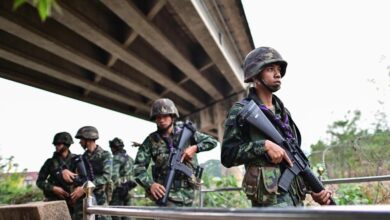
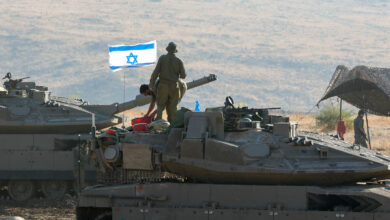
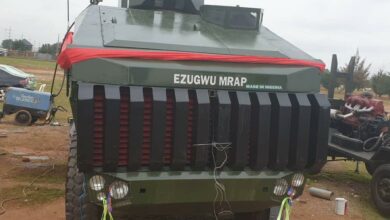
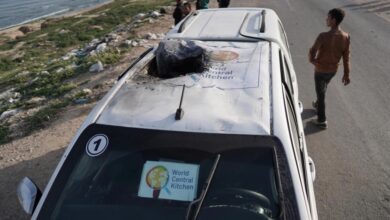
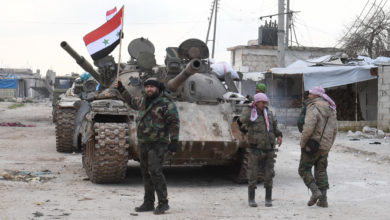



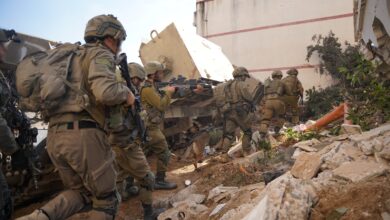

2 Comments